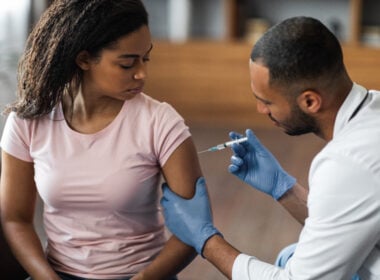Like depression, postpartum depression (PPD) is a serious mental health issue requiring medical attention. PPD is specifically depression that follows the birth of a child. While approximately 70% of women experience “the baby blues” after giving birth, the feelings of sadness and anxiety associated with the baby blues typically only last for a few days postpartum. The symptoms of postpartum depression are more severe and last for two or more weeks.
What does PPD feel like?
The symptoms of PPD can vary from woman to woman. Symptoms can include feelings of intense sadness, depression, anxiety, anger, restlessness, fear, and intrusive thoughts. Crying, fatigue, loss of appetite, weight loss or weight gain, and insomnia are also common PPD symptoms. Although suicide and/or violent behavior is rare, some women with PPD may have intrusive thoughts of harming themselves or their baby. These thoughts could also be a sign of postpartum psychosis (more on this below).
Laura recently shared her personal experience with postpartum depression with Natural Womanhood. Read about her journey with PPD, here.
Who can get postpartum depression?
According to the CDC, postpartum depression affects approximately 1 in 8 American women after childbirth. Some states may have PPD rates as high as 1 in 5 new mothers. Any woman who has just given birth can experience PPD, and even some new fathers experience it, too.
Some individuals may be more at-risk for developing PPD than others. According to the Mayo Clinic, risk factors for PPD include:
- A personal or family history of depression or other mental illness, such as bipolar disorder
- Having already experienced postpartum depression after the birth of a previous child
- Having a multiple birth (i.e., twins, triplets, etc.)
- Experiencing pregnancy or childbirth complications
- Having a child with special needs and/or health problems
- Financial issues
- Lack of personal support / relationship issues with spouse or partner
- Difficulty breastfeeding
Do you think that you might be at risk for postpartum depression? Click here to learn more about symptoms and treatment methods.
When does PPD start? Can it start later?
If you’re wondering if PPD can start at four, seven, or even eight months after giving birth, the answer is “yes.” According to the American College of Obstetricians and Gynecologists (ACOG), PPD can occur anytime within one year after the birth of a child. Most commonly, however, symptoms begin within 1-3 weeks of giving birth.
Can postpartum depression come and go?
As with clinically-diagnosed depression, PPD symptoms are persistent. If your symptoms come and go, yet you are still concerned that you may have PPD, you should talk to your doctor.
Why does it happen?
There is no single cause of PPD. Contributing factors may be a combination of genetics, the physical changes a woman undergoes after giving birth (especially hormonal changes), the various risk factors discussed above, and the difficulties/life changes that come from caring for a newborn.
How is it diagnosed? Is there a “quiz” or screening tool?
Doctors commonly use the Edinburgh Postnatal Depression Scale (EPDS) to help screen women for PPD at their 6-8 week postpartum follow-up visit. A ten-question, self-rated scale, the Edinburgh Postnatal Depression Scale helps doctors see how new mothers have been feeling over the course of the past seven days. ACOG recommends that “all obstetrician–gynecologists and other obstetric care providers complete a full assessment of mood and emotional well-being (including screening for postpartum depression and anxiety with a validated instrument) during the comprehensive postpartum visit for each patient.” The Edinburgh Postnatal Depression Scale has been translated into multiple languages, and is widely used across the world for PPD screening.
How is it treated?
Treatment for postpartum depression may include one of the following options, or some combination of them:
Hormone Therapy
Because PPD may, in part, be due to the hormonal changes a woman undergoes after giving birth, treatment with bioidentical progesterone may help significantly resolve PPD symptoms.
Antidepressant Medication
Some women may need to begin an antidepressant medication in order to combat their PPD. If you have concerns about the compatibility of antidepressant medication and breastfeeding, be sure to talk them over with your doctor.
Psychotherapy
Psychotherapy (sometimes in conjunction with hormone therapy or antidepressant medication) may be beneficial for some women who are suffering from PPD. Various forms of psychotherapy that may be used to treat PPD, including Cognitive Behavioral Therapy and Interpersonal Therapy.
Does postpartum depression affect relationships?
PPD can impact your relationships, especially with your spouse and other children, and can make it especially difficult to bond with your new baby. Postpartum depression can especially impact the breastfeeding relationship between a mother and baby, and difficulties breastfeeding can make postpartum depression more likely. Marital discord can both contribute to, and arise from postpartum depression.
Can postpartum depression affect the baby?
According to womenshealth.gov, “Researchers believe postpartum depression in a mother can affect her child throughout childhood, causing:
- Delays in language development and problems learning
- Problems with mother-child bonding
- Behavior problems
- More crying or agitation
- Shorter height and higher risk of obesity in preschoolers
- Problems dealing with stress and adjusting to school and other social situations”
Getting help for your PPD will therefore not only benefit your health, but your baby’s, too.
Will it go away on its own?
According to MedicalNewsToday, postpartum depression can last for months or years if left untreated. If you suspect that you may have postpartum depression, do not feel ashamed of the condition or suffer in silence. If you or someone you love suspects that you many have PPD, you should talk to your doctor about it as soon as possible.
What is postpartum psychosis? How is postpartum psychosis different from postpartum depression?
According to the National Alliance on Mental Illness, “psychosis is characterized as disruptions to a person’s thoughts and perceptions that make it difficult for them to recognize what is real and what isn’t.” Postpartum psychosis is a rare, but extremely serious psychotic disorder arising in the postpartum period, which makes it a medical emergency requiring immediate medical attention. According to UpToDate.com (a software system used by many clinicians as an evidence-based clinical resource):
“Women with postpartum psychosis develop rapid onset of psychotic symptoms, including hallucinations and delusions, bizarre behavior, confusion, and disorganization that may appear to be delirium. Postpartum psychosis is most often seen in patients that have been or will be diagnosed with bipolar disorder, but can also occur in women with a major depression with psychosis, schizophrenia, or schizoaffective disorder. A subset of women experience isolated postpartum psychosis that does not progress to mood or psychotic episodes outside the postpartum time period.”
Improving mental health with fertility awareness
No matter where you are in your fertility or mental health journey, charting your cycles with a fertility awareness method (FAM) or natural family planning (NFP) can benefit your mental health by helping you understand what’s happening inside your body. Charting doesn’t stop your hormones from fluctuating, but it helps you know when they are so that you can intentionally choose how you respond. Life happens for you, not to you. Fertility awareness helps you respond purposefully rather than react.
Easing the postpartum period
For more tips on easing the postpartum transition (including information on FAM charting and family planning postpartum), check out our Fourth Trimester Postpartum Guidebook series, below.
When this page refers to fertility awareness methods (FAM), or natural family planning (NFP), we are referring to Fertility Awareness-Based Methods, evidence-based methods of cycle charting which can be used as effective forms of natural birth control when learned by a certified instructor.
For more information on postpartum depression, see the articles below.
-
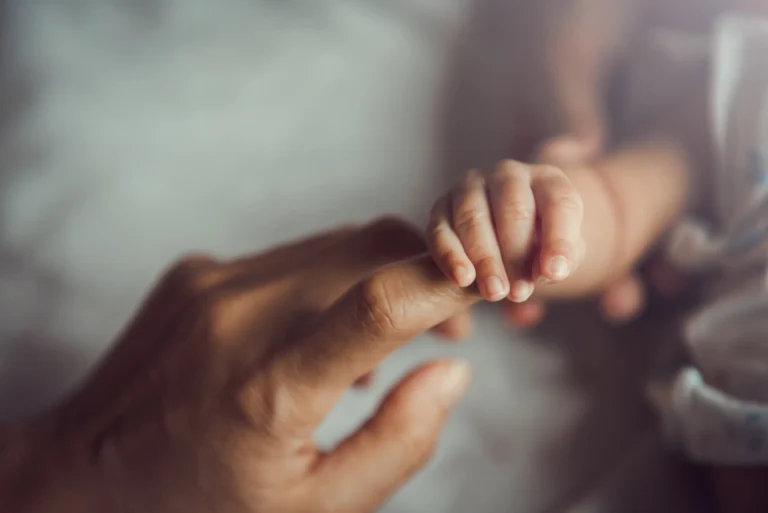
How does the new postpartum depression pill work?
By Kristen Curran • February 15, 2024And is medication the best treatment for PPD? -
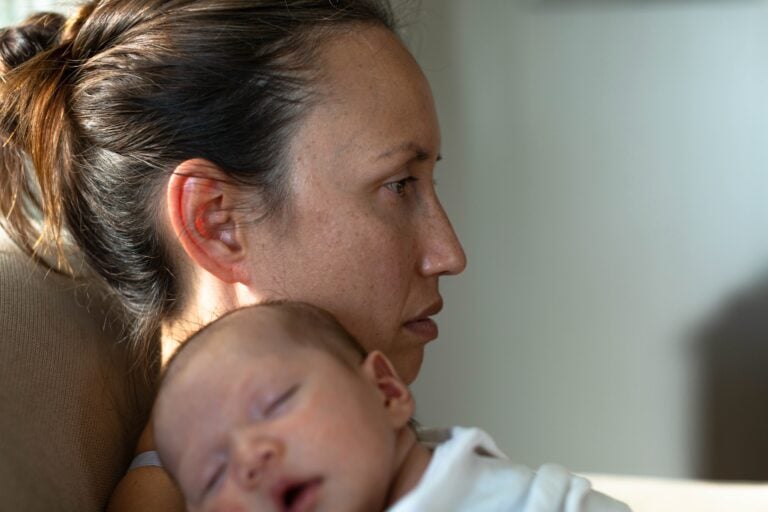
If you developed depression after taking birth control, you might be at higher risk of postpartum depression later on
By Alex Rico • November 3, 2023Women with a history of depression on birth control may be at higher risk -
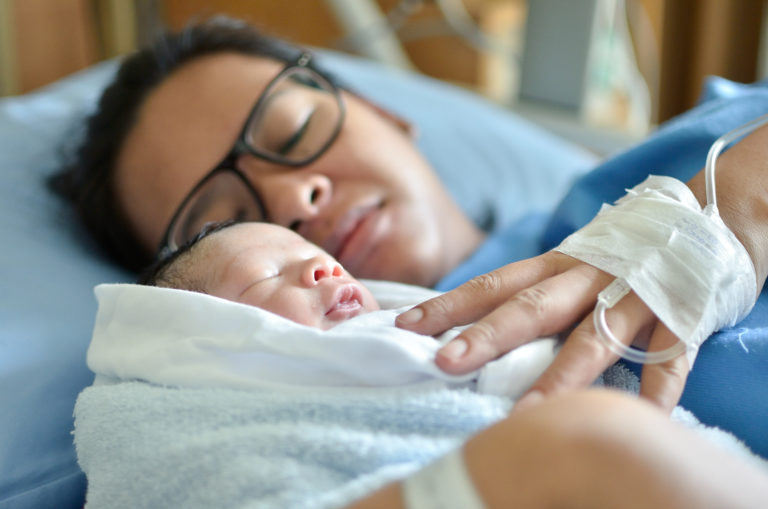
The Fourth Trimester Guidebook: Your Postpartum Mental Health Matters
By Anne Marie Williams, RN, BSN • February 3, 2022This article marks the third installment in our series on the “fourth trimester,” otherwise known as the first… -

The Fourth Trimester Guidebook: Postpartum Healing and Exercise
By Anne Marie Williams, RN, BSN • January 28, 2022Author’s Note: neither Natural Womanhood nor I personally have any connection to nor affiliation with any site or… -
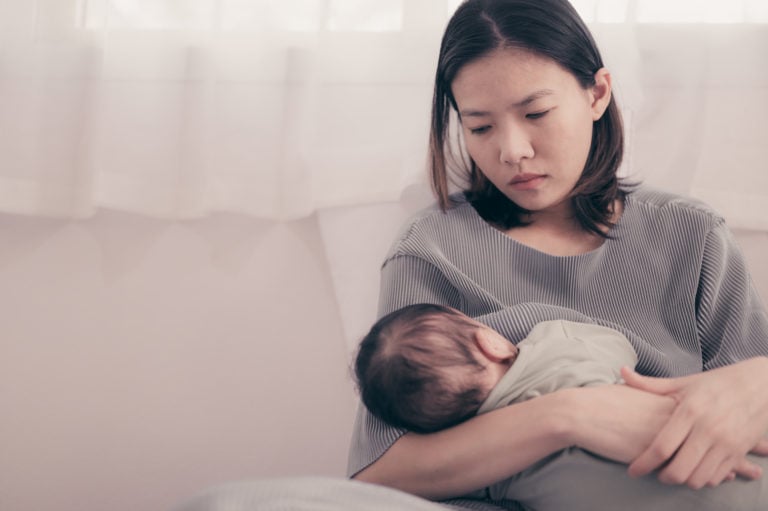
“When does postpartum depression start?” and other questions, answered: A Natural Womanhood PPD FAQ
By Natural Womanhood • July 23, 2020What is postpartum depression? Like depression, postpartum depression (PPD) is a serious mental health issue requiring medical… -
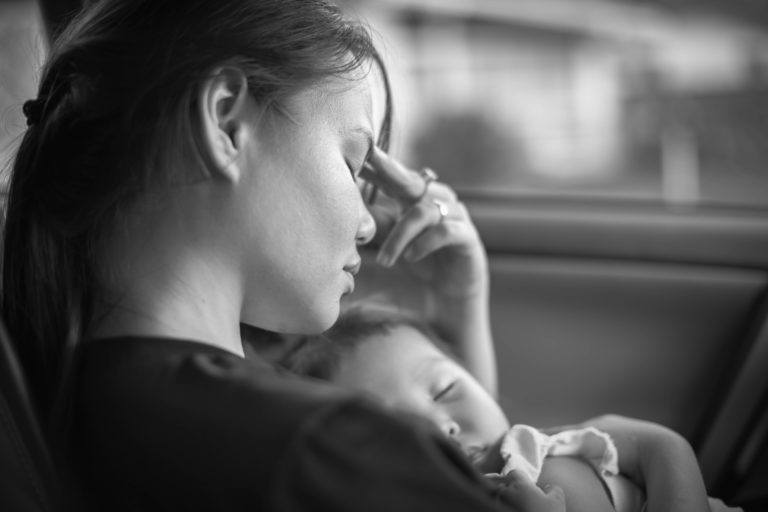
How I Overcame Postpartum Depression with Bioidentical Progesterone
By Laura Range • July 8, 2020By the time of her six-week postpartum visit, Laura knew that something was wrong. While many women experience… -

12 Relatable Instagram Accounts for New Moms to Follow
By Rachel Wilkerson, PhD • May 15, 2020My evening essentials for the first few blurry weeks of being a new mom have included enormous glasses… -

Understanding and Recognizing Postpartum Depression
By Julia Hogan-Werner, LCPC • February 5, 2020Having a baby is a life-changing event, and, for some, it can feel like your life has been…



